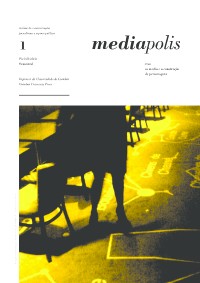Please use this identifier to cite or link to this item:
https://hdl.handle.net/10316.2/36942| DC Field | Value | Language |
|---|---|---|
| dc.contributor.author | Cordeiro, Cristina Robalo | - |
| dc.date.accessioned | 2015-07-21T17:31:22Z | |
| dc.date.accessioned | 2020-10-04T07:03:01Z | - |
| dc.date.available | 2015-07-21T17:31:22Z | |
| dc.date.available | 2020-10-04T07:03:01Z | - |
| dc.date.issued | 2015 | - |
| dc.identifier.issn | 2183-5918 | - |
| dc.identifier.issn | 2183-6019 (digital) | - |
| dc.identifier.uri | https://hdl.handle.net/10316.2/36942 | - |
| dc.description.abstract | Antes de abordar diretamente a questão da africanidade de Albert Camus, preciso de descrever o caminho que me levou até aí. Depois de ter ‘ensinado’ a obra e falado sobre o homem durante muito tempo nas minhas aulas de literatura, descobri em mim, através do contacto prolongado com o norte de África e da prática da escrita ficcional, a força e a fecundidade da sua influência. Essa influência é, sem dúvida, a da terra africana, do seu clima brutal, da violência das suas paisagens, de onde o escritor fez surgir o lirismo das suas mais belas páginas. Mas será este fascínio físico, tão vividamente representado na obra, a única fonte do sentimento de pertença à África? Há um enigma que devemos tentar resolver, um tabu que tem de ser quebrado. Na minha opinião, a africanidade reivindicada por Camus - essa sensação de liberdade, essa ausência de lei moral - não advém apenas da sua juventude de pied-noir, mas acima de tudo das suas leituras, especialmente da leitura de Rousseau e de Arthur Rimbaud. | por |
| dc.description.abstract | Before considering directly the question of the “African-ness” of Albert Camus, I must briefly describe the way which led my thoughts to it. Having, years along, taught the work and evoked the man in my lessons of literature, I lately realized, in a prolonged contact with North-Africa and in my own fictional writing, how deep and fertile his influence has been on my own personality. This influence comes, no doubt, from the African soil itself, from its harsh climate and violent landscapes. But such a physical fascination, so vividly represented in his work, is not the only origin of his feeling of African belonging. There is here an enigma to be accounted for, a taboo to be dispelled. My opinion is that the “African-ness” upheld by Camus – this sensation of freedom, this moral lawlessness – does not derive only from his youth as a “pied-noir”, but above all from the books he read, from J.J. Rousseau and Arthur Rimbaud in particular. | eng |
| dc.language.iso | por | - |
| dc.publisher | Imprensa da Universidade de Coimbra | - |
| dc.subject | African-ness | eng |
| dc.subject | Testimony | eng |
| dc.subject | Taboo | eng |
| dc.subject | Enigma | eng |
| dc.subject | Moral Law | eng |
| dc.subject | Africanidade | por |
| dc.subject | Testemunho | por |
| dc.subject | Tabu | por |
| dc.subject | Enigma | por |
| dc.subject | Lei Moral | por |
| dc.title | Camus, o Africano | por |
| dc.title.alternative | Camus, the African | por |
| dc.type | article | - |
| uc.publication.collection | Mediapolis n.º 1 | - |
| uc.publication.firstPage | 118 | - |
| uc.publication.issue | 1 | - |
| uc.publication.lastPage | 126 | - |
| uc.publication.location | Coimbra | - |
| uc.publication.journalTitle | Mediapolis: revista de comunicação, jornalismo e espaço público | - |
| dc.identifier.doi | 10.14195/2183-6019_1_7 | - |
| uc.publication.section | Vária | - |
| uc.publication.orderno | 9 | - |
| uc.publication.area | Artes e Humanidades | - |
| uc.publication.manifest | https://dl.uc.pt/json/iiif/10316.2/36942/265375/manifest?manifest=/json/iiif/10316.2/36942/265375/manifest | - |
| uc.publication.thumbnail | https://dl.uc.pt/retrieve/12101539 | - |
| item.grantfulltext | open | - |
| item.fulltext | With Fulltext | - |
| Appears in Collections: | Mediapolis | |
Files in This Item:
| File | Description | Size | Format | |
|---|---|---|---|---|
| camus__o_africano.pdf | 455.55 kB | Adobe PDF |  |
Items in DSpace are protected by copyright, with all rights reserved, unless otherwise indicated.
